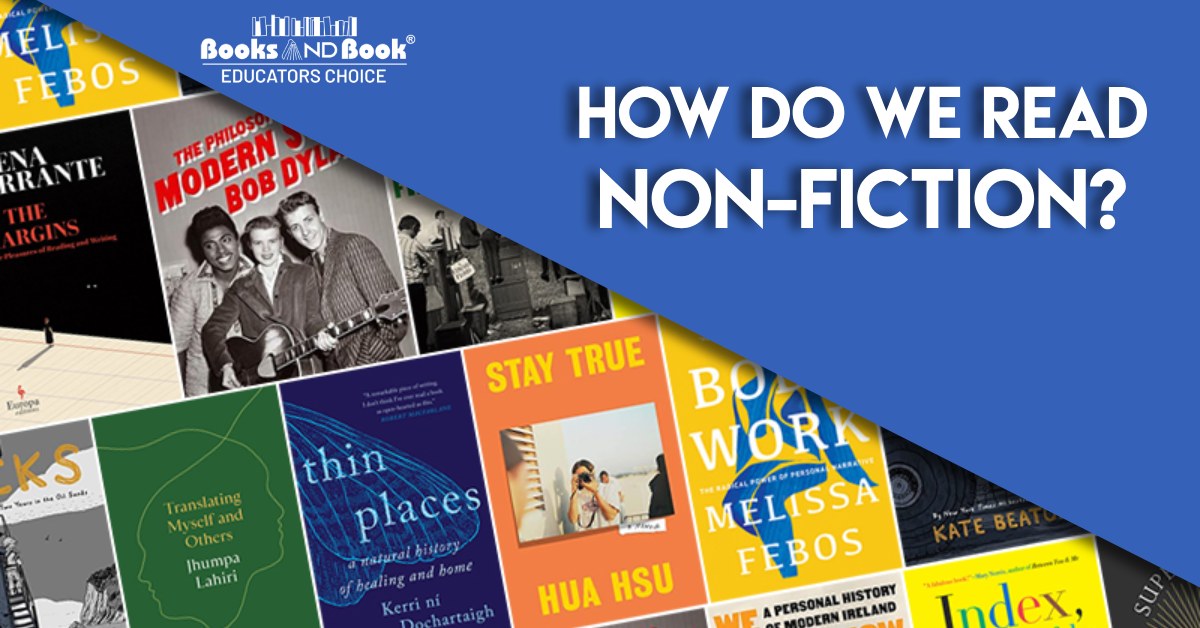Reading non-fiction can be a goldmine of knowledge, but it takes more than just flipping pages to get the most out of it.
Here are 9 tips to help you dive deeper into non-fiction books and come out with valuable insights.
9 Practical Tips On How To Read Non Fiction Books
1. Pre-Read Like a Detective
Before diving into the book, take a moment to investigate. Skim through the table of contents, chapter headings, and subheadings to get a sense of the book’s structure and main topics.
This sneak peek can help you prepare mentally for what lies ahead and give you a roadmap to follow as you read.
Next, don your detective hat and search for clues in the introduction and conclusion. These sections often provide valuable insights into the author’s main arguments, key points, and overall message. Pay attention to any bolded or italicized text, as these are often used to highlight important ideas.
By pre-reading like a detective, you’ll arm yourself with the knowledge needed to approach the book with purpose and focus, making your reading experience more efficient and rewarding.
2. Take Notes Like a Scholar
As you read, don’t just passively absorb information—actively engage with the text by taking notes. Jot down key ideas, interesting facts, and any questions or thoughts that come to mind. Highlight important passages and mark pages for future reference.
But don’t stop there. Take your note-taking to the next level by organizing your thoughts into categories or themes. This will help you identify patterns, connections, and overarching concepts within the text, allowing you to gain a deeper understanding of the material.
Think of yourself as a scholar uncovering hidden treasures within the pages of the book. By taking thorough and organized notes, you’ll not only retain more information but also develop critical thinking skills that will serve you well beyond the pages of the current book.
3. Reflect Like a Philosopher
After you’ve finished reading, take some time to reflect on what you’ve learned. Ask yourself questions like:
- How does this information relate to my own experiences or beliefs?
- What new insights have I gained?
- Are there any practical applications for this knowledge in my life or work?
By engaging in reflective thinking, you’ll deepen your understanding of the material and cement it in your long-term memory. You’ll also gain valuable insights that can help you apply what you’ve learned to real-world situations, making your reading experience truly transformative.
4. Engage in Active Reading
Reading non-fiction isn’t just about passively absorbing information—it’s about actively reading and engaging with the text.
As you read, ask yourself questions, challenge assumptions, and seek clarification on concepts that are unclear. Don’t be afraid to pause and reread sections that you find particularly challenging or thought-provoking.
Additionally, try to make connections between the material you’re reading and your own life or other topics you’ve encountered. This not only enhances your understanding of the material but also makes it more memorable and applicable to your daily life.
By approaching non-fiction with an active mindset, you’ll not only deepen your comprehension but also develop critical thinking skills that are essential for navigating the complexities of the world around you.
5. Discuss and Debate
Reading doesn’t have to be a solitary activity—engage with others to enhance your understanding and perspective. After reading a nonfiction book, consider discussing it with friends, colleagues, or members of a book club. Share your thoughts, ask questions, and listen to different viewpoints.
Engaging in discussion and debate not only helps solidify your understanding of the material but also exposes you to new ideas and perspectives that you may not have considered on your own. Plus, it’s a great way to build connections with others who share your interests.
So don’t keep your thoughts to yourself—share them with others and spark meaningful conversations that can deepen your understanding of the book and the world around you.
6. Apply What You Learn
The ultimate test of your understanding of a nonfiction book is how well you can apply its principles and concepts in real life. Take actionable steps to incorporate what you’ve learned into your daily routine, work, or personal projects.
Whether it’s implementing a new productivity strategy, trying out a new cooking technique, or applying insights from a self-help book to improve your relationships, don’t just let the knowledge sit idle in your mind—put it into practice.
By actively applying what you learn, you’ll not only reinforce your understanding of the material but also reap the tangible benefits of your reading. After all, the true value of non-fiction lies not just in what you know, but in how you use that knowledge to enrich your life and the lives of those around you.
7. Seek Diverse Perspectives
When exploring non-fiction literature, make a conscious effort to seek out diverse perspectives. This means reading books written by authors from different backgrounds, cultures, and viewpoints. Exposing yourself to a variety of perspectives enriches your understanding of complex issues and fosters empathy and open-mindedness.
Look for authors who challenge conventional wisdom or offer alternative viewpoints on familiar topics. By broadening your reading horizons, you’ll gain a more comprehensive understanding of the world and develop a nuanced approach to analyzing information.
Remember, diversity in reading leads to diversity in thought, which is essential for navigating an increasingly interconnected and multicultural world.
8. Practice Active Listening Skills
Reading non-fiction isn’t limited to just reading books—it also involves actively listening to podcasts, watching documentaries, and engaging with other forms of media that convey factual information. Cultivate your active listening skills by paying close attention to the content, taking notes, and asking questions.
Podcasts, in particular, are a valuable resource for exploring a wide range of topics and perspectives in a convenient and accessible format. Look for podcasts hosted by experts in their field or featuring interviews with authors of non-fiction books you’re interested in.
By expanding your non-fiction consumption beyond traditional books, you’ll expose yourself to a wealth of knowledge and insights that can enhance your understanding and broaden your intellectual horizons.
9. Create a Reading Routine
Consistency is key when it comes to effective non-fiction reading. Establish a regular reading routine by setting aside dedicated time each day or week to engage with non-fiction literature. Whether it’s first thing in the morning, during your lunch break, or before bed, find a time that works for you and stick to it.
By making reading a priority in your schedule, you’ll create a habit that not only enriches your mind but also provides a welcome escape from the hustle and bustle of daily life. Plus, the more you read, the more proficient you’ll become at digesting and synthesizing complex information.
So carve out some dedicated reading time in your schedule and watch as your knowledge and understanding of the world grow with each page you turn.
Conclusion
Reading non-fiction books is like embarking on a thrilling adventure where you uncover new ideas and expand your understanding of the world. By applying these simple tips, you’ll enhance your reading experience and unlock a treasure trove of knowledge that will stay with you for a lifetime. Happy reading!
FAQs
Why is it important to read non-fiction?
Reading non-fiction opens doors to new knowledge and perspectives. It helps us understand the world better, from history to science to personal development. Plus, it sharpens our critical thinking skills and keeps our minds curious and engaged.
How can I find non-fiction books that interest me?
Start by thinking about topics you’re curious about or want to learn more about. Then, hit up your local library or bookstore and browse the shelves. You can also ask friends or family for recommendations, or check out online reviews to see what others are enjoying.
What if I find non-fiction books boring?
If you’re struggling to get into non-fiction, try starting with topics that really interest you. Also, don’t be afraid to switch things up—try different authors, styles, or formats like audiobooks or podcasts. With so much out there to explore, you’re bound to find something that captures your attention.


